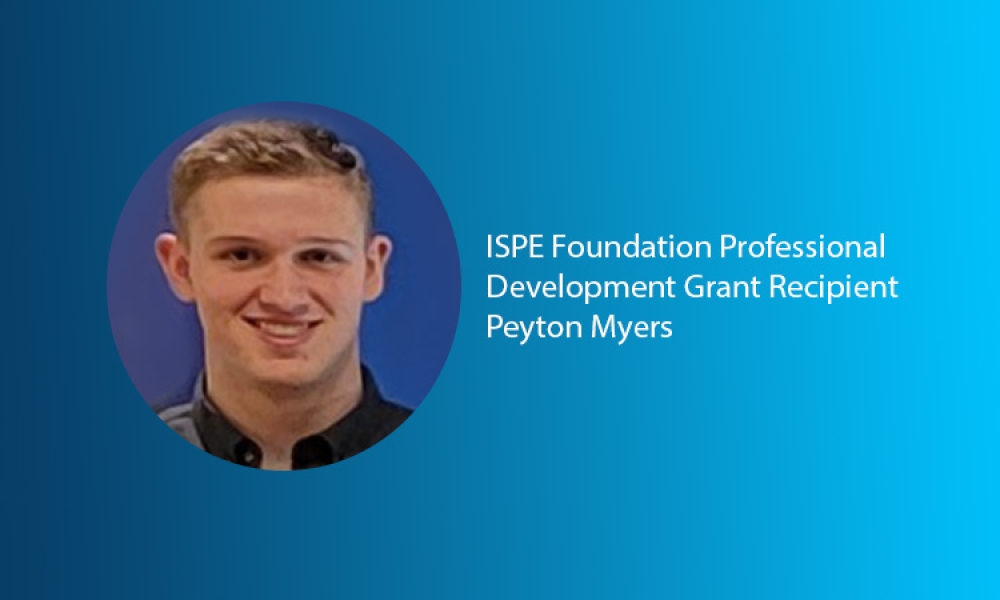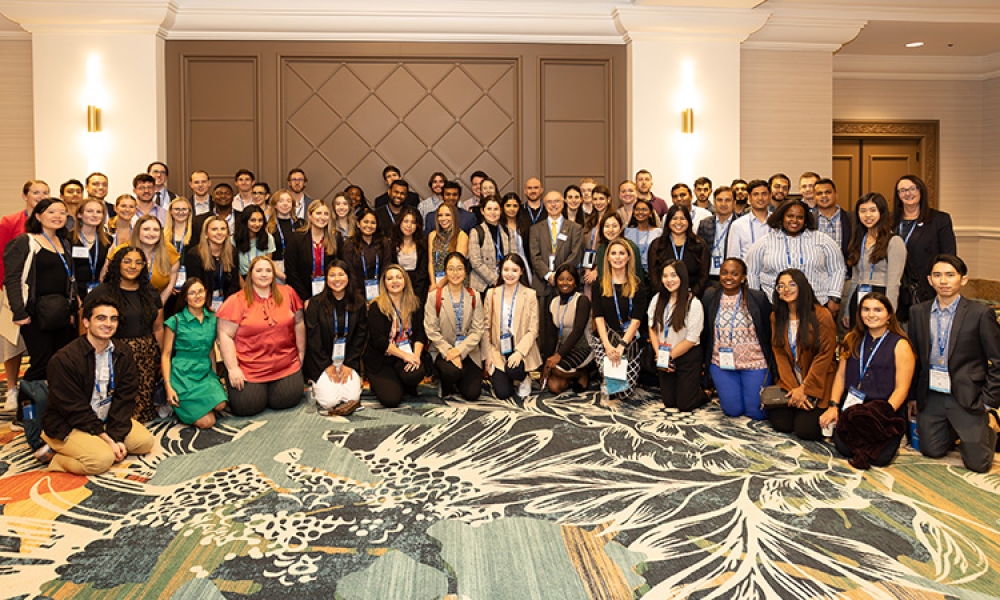2016 Member of the Year Maurice Parlane - Part 1

Pharmaceutical Engineering® magazine met with ISPE’s 2016 Member of the Year, Maurice Parlane, just before he headed out to the PV/PV Stats conference in Bethesda, Maryland, in October 2016. This is an edited version of the conversation.
This article was published in the November/December 2016 edition of Pharmaceutical Engineering® magazine.
How does it feel to receive this award?
I wasn’t expecting this. It feels great to be recognized. I feel quite humbled as there are so many members who contribute a lot to ISPE.
How did you get involved in pharmaceutical manufacturing?
I have to admit there was no real strategy. I had worked as an engineer in a couple of other sectors prior to joining Glaxo in a small New Zealand city called Palmerston North, where Glaxo was the largest employer. I was trained as an electrical draftsman, and then completed a qualification as a mechanical engineer. I was a bus designer of all things! The Glaxo role turned out to be a job that suited me as there were lots of new projects involving building and process equipment. I was there for nine years in various engineering roles, and then moved across to manufacturing management roles. During the time I was at Glaxo, they sent me back to university for two years, which was pretty cool. I had to fund it, but they graciously gave me work over the holidays and said, "You’ve got a job at the end of it." At that time, they must have seen something in me. To go into management roles, you really needed a degree and I didn’t have one at that time. I had only technical qualifications.
What degree did you obtain?
A bachelor of technology specializing in manufacturing and industrial engineering. And that was another stroke of luck: It was the perfect degree, because it was about quality by design, risk, statistics, manufacturing operations management, and personnel management. Unfortunately, the degree doesn’t exist anymore. To go to a university as a 30-year-old, with all the resources of Glaxo behind me, and then to be able to apply the degree, it was a revelation. I could see how I could use it anywhere. And when I went back to work I did get to use it a lot. I got deeply into process validation, process understanding, and quality improvement.
When did you first hear about ISPE?
We built a new dry powder inhalations manufacturing at the site in New Zealand, which was a strategic product for Glaxo at the time, so it had oversight from the UK head office. I met some of the project engineers from the UK who were involved in ISPE. It was probably those guys that influenced me—Simon Shelley, Chris Woods, and Nick Haycocks, I’ve been a member since then and still catch up with these guys via ISPE. Nick still "volunteers" me for roles at ISPE.
Why was it important to become an ISPE member?
It’s my need to be connected. My ISPE life really took off when I got into consulting. In my previous work, my involvement with ISPE was mostly technical, but as I moved into consulting it was also great for networking. ISPE is really important to understanding what is going on globally because we can see what is coming even if we won’t be able to apply it for a few years’ time. It is essential when you are so far away from the hubs of pharma manufacture to be aware of what is going on. Pharmaceutical Engineering is always beside my bed or in my briefcase, and I read the whole thing from cover to cover, every issue.
How did New Wayz Consulting come to be?
Not long after Glaxo acquired Wellcome in 1995 they realized they had too much manufacturing capacity. Essentially, Glaxo ended up with twice as many factories, which were underutilized and inefficient, so Glaxo Wellcome decided to tighten their belt. And ours was one of a number of sites to close. In a weird way that was a lucky break. As we closed the site over two years, senior management slowly left and I took on more responsibility. That was the first stroke of luck. I wasn’t site manager or anything like that, but I managed the closing with another colleague. It gave me connections to a lot of people I would not have met otherwise. The process of dealing with the site closure broadened my horizons significantly. Secondly, as a result of the closure we shifted the sales and marketing, clinical/R&D and admin functions to another city and set them up in a commercial building. As the manufacturing operation wound back and eventually closed, I ended up with more responsibility. Because the corporate executive staff were based in another city, I ended up dealing directly with commercial matters that were well beyond my previous responsibilities. That’s how New Wayz came to be as well. Glaxo basically said, "We still have a lot to do. How about you hang on for another year and work for us on contract?" They encouraged me to set up a company and gave me and my business partner work for a year, dealing with the site sale and tech-transfer processes. New Wayz has grown from that.
What kind of consulting does New Wayz do?
The pharmaceutical sector in New Zealand is not big at all, so we cannot survive on pharma work. There are a couple of generic manufacturers here that are reasonably large by New Zealand standards; there’s a veterinary manufacturing presence, medical devices, and a lot of natural health products, which are regulated as low-risk medicines in Australia. We also do some work in the infant formula sector, where some of the larger players treat their supply chains more like pharmaceutical supply chains. There are a number of operations across these sectors where we provide compliance and operational consulting—mainly for scale-up, but sometimes for compliance remediation. In relative terms, New Zealand also has quite a lot of startups in these areas, and we get quite a lot of work with these companies. We also work in the pharma sector in Australia, where there are is a considerably larger pharma manufacturing presence. New Wayz has managed to grow through these past 20 years, initially fortuitously. When my business partner left, I would look at his role and say if I’m going to make a serious go of this consulting, I am going to have to keep up with what he’s doing in the corporate world. So I used to try to benchmark what he was doing, to keep pace. I started alone, but I now have eight staff; one person has been with me for 16 years and two others for over 10 years.
Pharmaceutical Engineering® Magazine: The magazine covers topics important to the global pharmaceutical industry across all sectors, including traditional pharmaceuticals, biotechnology, innovator, and generics. Pharmaceutical Engineering magazine presents valuable information on the latest scientific and technical developments, regulatory initiatives, and innovative solutions to real-life problems and challenges through practical application articles and case studies. Stay connected with the pharmaceutical industry by becoming a member of ISPE and receive Pharmaceutical Engineering magazine delivered to your inbox and by mail. Subscribe to iSpeak to receive Part 2 of the interview with Maurice Parlane delivered straight to your inbox.


